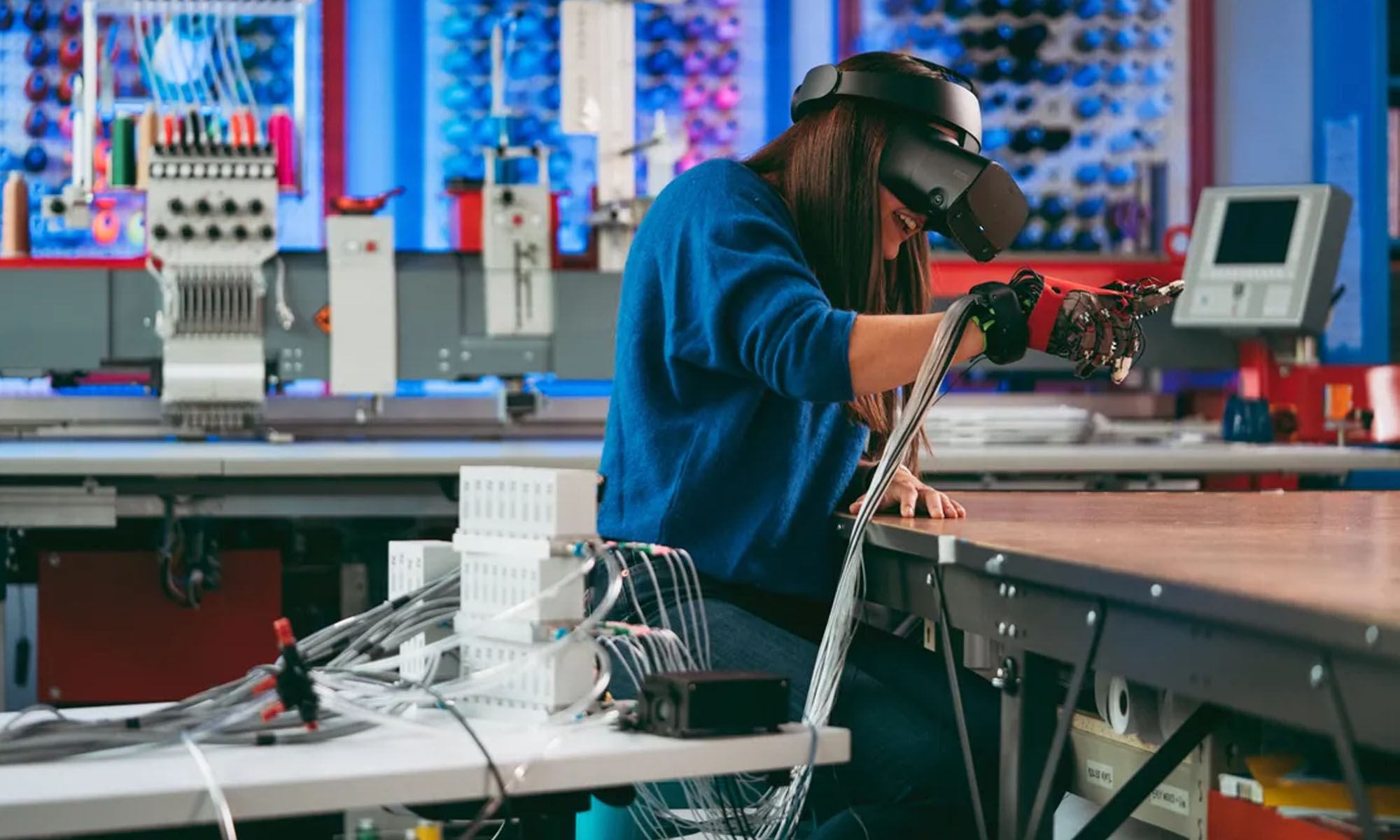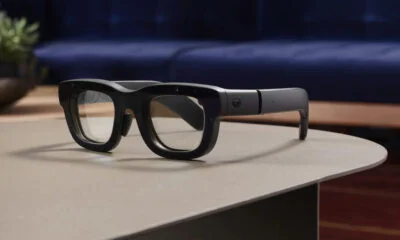News
Meta Unveils Its Prototype Haptic Gloves For Virtual Reality
The gloves are capable of simulating complex sensations to provide their wearer with natural feedback when interacting with virtual objects.

Meta — formerly Facebook — is trying to create what it describes as an embodied version of the internet, and it’s working hard on many individual pieces that are supposed to enable users to interact with it. Recently, a team at Reality Labs (RL) Research has unveiled a prototype of virtual reality haptic gloves capable of simulating complex sensations to provide their wearer with natural feedback when interacting with virtual objects.
The gloves use arrays of microfluidic actuators driven by the world’s first high-speed microfluidic processor to achieve millisecond response times while keeping power consumption minimal — something that’s extremely important for any wearable hardware device.

Once ready for release, the gloves could be used to support many virtual reality use cases. “The value of hands to solving the interaction problem in AR and VR is immense” explained RL Research Director Sean Keller. “We use our hands to communicate with others, to learn about the world, and to take action within it. We can take advantage of a lifetime of motor learning if we can bring full hand presence into AR and VR”.
Unfortunately, a lot of work still needs to be done for the technology to leave the research lab where it’s being developed. According to Keller, the team has made groundbreaking progress across multiple scientific and engineering disciplines, but the light at the end of the tunnel is only starting to become visible.
Also Read: A Beginner’s Guide To Getting Started With NFTs
Meta isn’t the only company working on haptic gloves for virtual reality. There’s also HaptX, whose founder and CEO Jake Rubin has accused Meta of copying its patented designs. In an official statement, the company claims that Meta’s gloves appear to be substantially identical to HaptX’s patented technology.
“We welcome interest and competition in the field of microfluidic haptics; however, competition must be fair for the industry to thrive” said Rubin. Meta has yet to respond to the accusation, so stay tuned for updates.
News
Rabbit Expands Hyperlocal Delivery Service In Saudi Arabia
The e-commerce startup is aiming to tap into the Kingdom’s underdeveloped e-grocery sector with a tech-first, locally rooted strategy.

Rabbit, an Egyptian-born hyperlocal e-commerce startup, is expanding into the Saudi Arabian market, setting its sights on delivering 20 million items across major cities by 2026.
The company, founded in 2021, is already operational in the Kingdom, with its regional headquarters now open in Riyadh and an established network of strategically located fulfillment centers — commonly known as “dark stores” — across the capital.
The timing is strategic: Saudi Arabia’s online grocery transactions currently sit at 1.3%, notably behind the UAE (5.3%) and the United States (4.8%). With the Kingdom’s food and grocery market estimated at $60 billion, even a modest increase in online adoption could create a multi-billion-dollar opportunity.
Rabbit also sees a clear alignment between its business goals and Saudi Arabia’s Vision 2030, which aims to boost retail sector innovation, support small and medium-sized enterprises, attract foreign investment, and develop a robust digital economy.
The company’s e-commerce model is based on speed and efficiency. Delivery of anything from groceries and snacks to cosmetics and household staples is promised in 20 minutes or less, facilitated by a tightly optimized logistics system — a crucial component in a sector where profit margins and delivery expectations are razor-thin.
Despite the challenges, Rabbit has already found its stride in Egypt. In just over three years, the app has been used by 1.4 million customers to deliver more than 40 million items. Revenue has surged, growing more than eightfold in the past two years alone.
Also Read: Top E-Commerce Websites In The Middle East In 2025
CEO and Co-Founder Ahmad Yousry commented: “We are delighted to announce Rabbit’s expansion into the Kingdom. We pride ourselves on being a hyperlocal company, bringing our bleeding-edge tech and experience to transform the grocery shopping experience for Saudi households, and delivering the best products – especially local favorites, in just 20 minutes”.
The company’s growth strategy avoids the pitfalls of over-reliance on aggressive discounting. Instead, Rabbit leans on operational efficiency, customer retention, and smart scaling. The approach is paying off, having already attracted major investment from the likes of Lorax Capital Partners, Global Ventures, Raed Ventures, and Beltone Venture Capital, alongside earlier investors such as Global Founders Capital, Goodwater Capital, and Hub71.


























